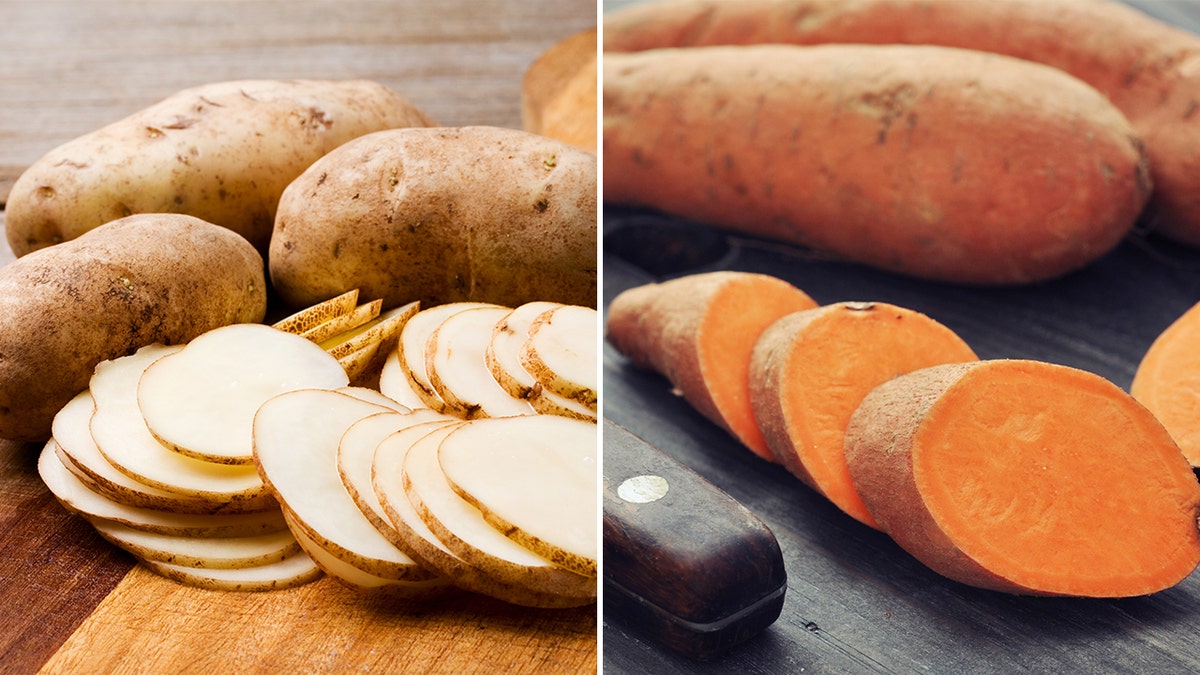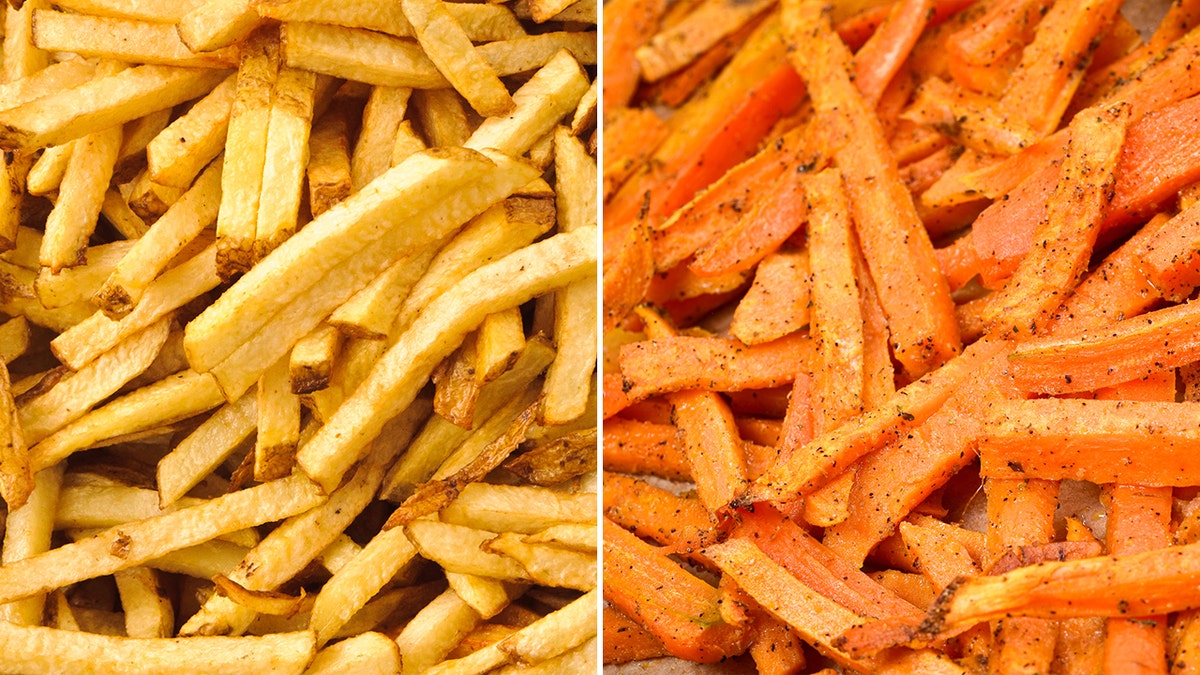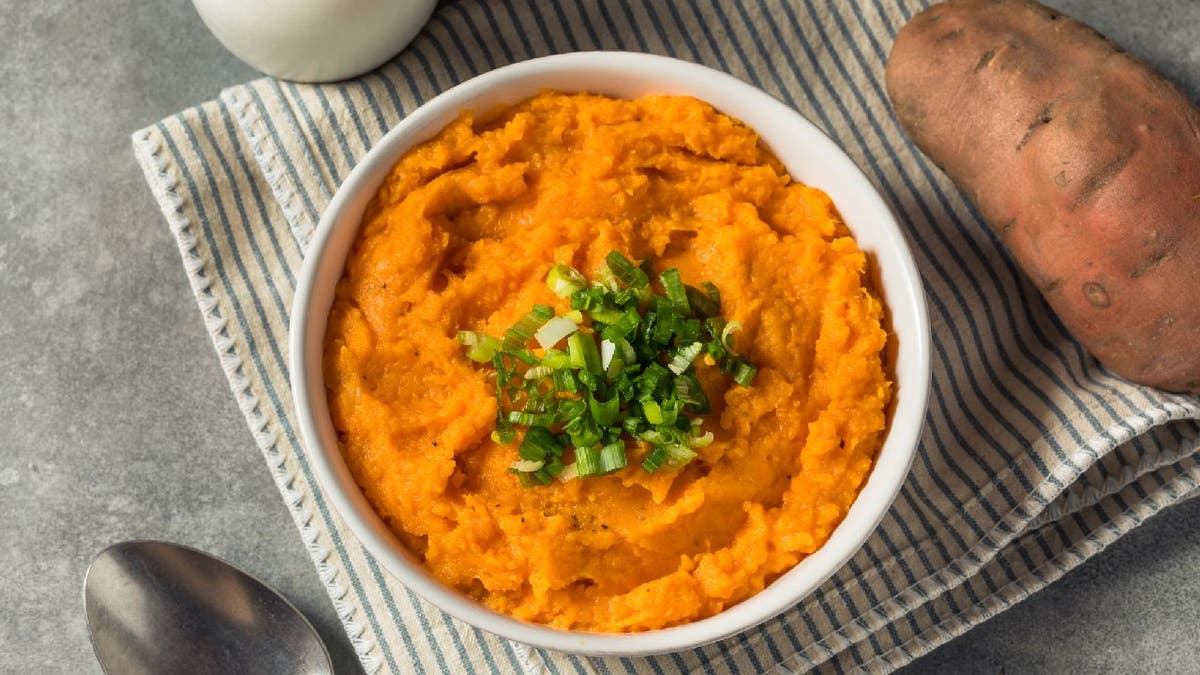From sweet potato pie to supermarket aisles overflowing with potato varieties, the debate between white potatoes and sweet potatoes continues. While their differences in color and taste are obvious, the nutritional nuances often remain a mystery. Are white potatoes superior for health-conscious individuals due to their lower sugar content? Or do sweet potatoes win out with their rich vitamin and mineral profile? The truth is, the "better" choice depends entirely on your individual health needs and dietary goals.

Nutritional Comparison: White Potatoes vs. Sweet Potatoes
Both white and sweet potatoes earn their place in a healthy diet. They offer a similar nutritional composition, though some key distinctions exist. Sweet potatoes often get a slight advantage thanks to their abundance of Vitamin A and beta-carotene, potent antioxidants known for their cell-protective and anti-inflammatory properties. Both varieties offer comparable levels of Vitamin B6, Vitamin C, and fiber.
Generally, white potatoes boast higher calorie, carbohydrate, and potassium counts compared to sweet potatoes, despite having less sugar. They also hold a slight edge in magnesium and iron content. However, sweet potatoes often contain significantly more Vitamin A, sometimes exceeding white potatoes by a factor of 100 or even 1,000, depending on size. Sweet potatoes also offer more calcium and manganese, though slightly less protein.

Weight Goals and Potato Choices
For those aiming to shed pounds or maintain their current weight, both potato types can be incorporated into a balanced diet. However, their glycemic index (GI) values present an important consideration. White potatoes tend to have a higher GI, meaning they can cause sharper spikes in blood sugar levels. Conversely, sweet potatoes, despite their higher sugar content, have a lower GI and thus a gentler impact on blood sugar. Their fiber content further contributes to blood sugar control and promotes feelings of fullness, a valuable asset for weight management.

It's crucial to remember that cooking methods and accompanying ingredients also influence blood sugar responses. Boiling or steaming potatoes generally preserves more nutrients compared to frying.
Gaining Weight and Building Muscle: White Potatoes Take the Lead
Individuals seeking to gain weight or build muscle might find white potatoes more advantageous. Their higher carbohydrate content translates to more energy per serving, which can support physical activity and muscle growth when combined with regular strength training.

Sustained Fullness: Sweet Potatoes May Have an Edge
Sweet potatoes slightly higher fiber content may contribute to a more prolonged feeling of fullness, potentially reducing the urge to snack between meals.

The Verdict: Both Potatoes Offer Health Benefits
Ultimately, both white and sweet potatoes deserve a spot in a healthy diet. They each bring unique nutritional strengths to the table. Rather than viewing them as competitors, it's more beneficial to appreciate their individual contributions to a balanced and varied eating plan.









